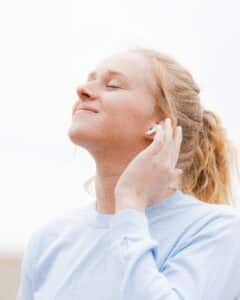It is not uncommon for teenagers to experience anxiety in school, especially when faced with upcoming exams, group projects, or essays. However, there are instances where signs of student anxiety and depression go beyond the usual stress of academic demands. It is crucial for teachers and educators to learn how to recognize these signs in order to provide the necessary support. Effective communication between parents and teachers is vital, as many signs of anxiety or depression in the classroom may also manifest at home. Some aspects of teen depression, such as changes in eating and sleeping habits, might be better identified by parents, while teachers may be more adept at recognizing other indicators. By fostering open communication, both parties can collaborate in identifying when a student is in need of assistance.
Signs of Teen Anxiety
Recognizing signs of anxiety or depression in the classroom can help identify students who may require treatment for anxiety disorders. Studies have shown that approximately twenty-five percent of students under the age of eighteen deal with teen anxiety disorders. While symptoms such as avoiding participation in group discussions, disruptive behavior, difficulty interacting with peers, and perfectionism may be common to a certain extent, the presence of multiple persistent and extreme signs should raise concerns and prompt conversations with school principals or parents regarding the need for help.
Treatment for teen anxiety becomes necessary when symptoms are severe enough to significantly impact a student’s school or home life. Various forms of anxiety disorders may be observed in the classroom, including:
- Specific Phobias: Teachers may notice extreme fears in individual students concerning specific situations or objects, such as visiting the school nurse, insects, or dogs.
- Social Anxiety: Students may exhibit anxiety related to social situations in school, group activities, or field trips involving large groups of people.
- Generalized Anxiety Disorder: Students may express excessive worry about their future, overwhelming thoughts of something bad happening to them, or difficulty meeting academic requirements.
- Panic Disorder: Students experiencing episodes of unexpected and intense fear accompanied by symptoms like dizziness, shaking, sweating, and breathing difficulties may be struggling with panic disorder.
Signs of Teen Depression
Signs of anxiety or depression in the classroom may indicate the presence of student depression that requires proper treatment. Teen depression should be addressed if the symptoms go beyond typical hormonal fluctuations and persist for weeks or months, significantly affecting daily life and school responsibilities. Some examples of such signs include:
- Changes in Sleeping Patterns: Teachers may indirectly observe students displaying tiredness, falling asleep in class, or consistently feeling fatigued, which can be confirmed through communication with parents.
- Difficulty Paying Attention: Teachers may notice students having trouble focusing or paying attention under normal circumstances, not just when distractions are present, suggesting a more intense issue.
- Changes in Energy Levels: Educators might observe students being consistently sluggish or restless, displaying irritability, hopelessness, and sadness.
- Loss of Interest: Students who no longer derive enjoyment from activities they once loved, exhibit a lack of enthusiasm in school or social interactions, may be showing signs of student depression.
In cases where students display these signs, many teenagers benefit from mental health treatment programs like the outpatient programs offered by Water Gap Wellness Center.
Find Help With Water Gap Wellness Center
Outpatient programs allow teens to receive treatment for anxiety or depression without needing extended time away from school. These flexible programs can be tailored to provide mental health treatment at nearby facilities in the afternoons following school.
Mental health treatment centers like Water Gap Wellness Center offer individualized depression treatment programs for mental health. Reach out to Water Gap Wellness to learn more about reducing the stigma today.




